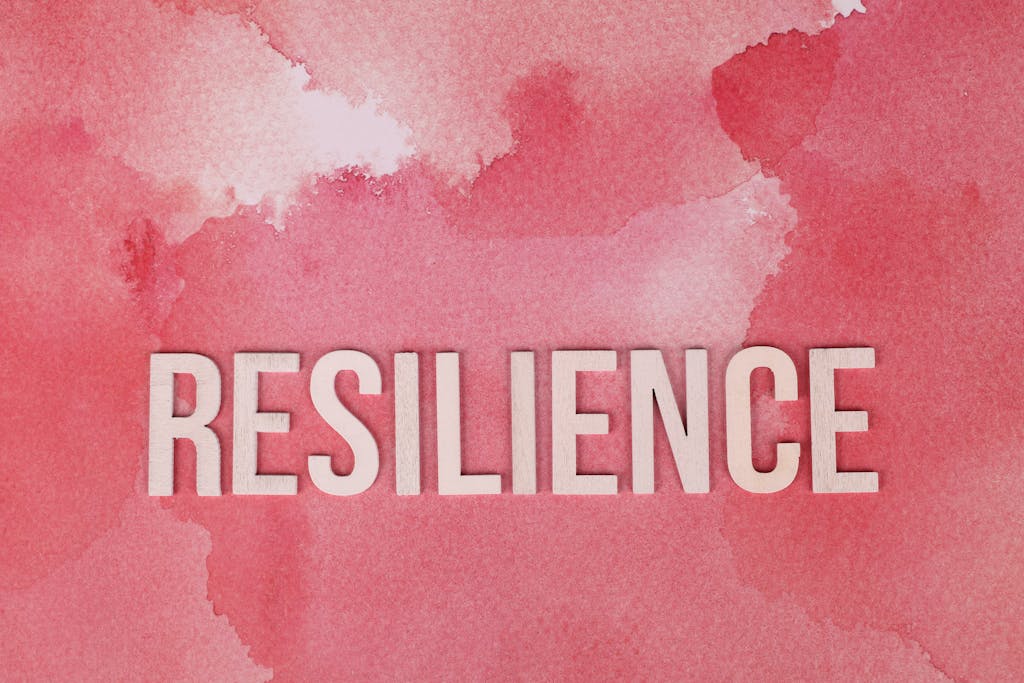Personal growth is a lifelong journey that shapes who we are and who we aspire to become. Whether you’re striving for professional success or personal fulfillment, developing certain skills can significantly accelerate your journey. Did you know that 80% of people who set personal growth goals report feeling more satisfied with their lives? Let’s dive into the 10 essential skills for personal growth that will help you achieve your fullest potential!

What are 10 Essential Skills for Personal Growth?
Personal growth is an ongoing journey of self-improvement and learning that can profoundly impact various aspects of your life. The skills you develop on this journey can help you become more resilient, self-aware, and successful in both your personal and professional endeavors. Here, we will delve into 10 essential skills that are fundamental for anyone seeking to enhance their personal development.
These skills encompass various areas, from emotional intelligence and effective communication to critical thinking and goal-setting. By focusing on these key areas, you can unlock your full potential and pave the way for a more fulfilling and purposeful life. Let’s explore each of these essential skills in detail to understand how they can contribute to your personal growth.
1. Effective Communication Skills
Effective communication is a cornerstone of personal growth. It involves the ability to convey information and ideas clearly and confidently, whether in writing, speaking, or through non-verbal cues. Here’s why and how you can develop this crucial skill:
Why Communication Skill Matter
Strong communication skills enable you to:
- – Build and maintain healthy relationships
- – Express your thoughts and feelings effectively
- – Resolve conflicts and misunderstandings
- – Influence and persuade others
- – Enhance teamwork and collaboration
How to Improve Your Communication Skills
- Listen Actively: Active listening is about fully engaging with the speaker, understanding their message, and responding thoughtfully. Avoid interrupting and focus on what is being said instead of formulating your response while they are speaking.
- Be Clear and Concise: Aim to express your thoughts directly and straightforwardly. Avoid using jargon or overly complex language that might confuse your audience.
- Pay Attention to Non-Verbal Cues: Non-verbal communication, such as body language, facial expressions, and eye contact, plays a vital role in how your message is received. Ensure your non-verbal cues align with your verbal message.
- Practice Empathy: Understanding and empathizing with your audience can help you tailor your message to their needs and perspectives, making your communication more effective and meaningful.
- Develop Your Writing Skills: Clear and concise writing is essential for effective communication, especially in a professional setting. Practice writing regularly and seek feedback to improve.
- Seek Constructive Feedback: Regular feedback from peers, mentors, or supervisors can provide valuable insights into areas where you can improve your communication skills.
- Build Your Confidence: Confidence in communication comes from preparation and practice. The more you engage in public speaking, presentations, or even casual conversations, the more confident you will become.
By investing time and effort into honing your communication skills, you equip yourself to navigate various personal and professional situations more effectively. Whether building stronger relationships, leading a team, or addressing an audience, effective communication is essential for personal growth.
2. Emotional Intelligence
Emotional intelligence (EI) refers to the ability to recognize, understand, manage, and utilize emotions effectively in oneself and others. It is a critical skill for personal growth as it influences how we interact with others, manage stress, and make decisions.
Why Emotional Intelligence Matters
Having high emotional intelligence can lead to:
- – Better self-awareness and self-regulation
- – Improved empathy and social skills
- – Enhanced relationships and conflict resolution
- – Greater mental well-being and stress management
- – Increased leadership capabilities and professional success
How to Develop Emotional Intelligence
- Self-Awareness: Self-awareness involves understanding your emotions, strengths, weaknesses, and values. Reflect on your emotional responses to different situations and recognize patterns in your behavior. Journaling can be an effective tool for increasing self-awareness.
- Self-Regulation: This is the ability to manage your emotions constructively. Practice techniques such as mindfulness, meditation, and deep-breathing exercises to help control impulsive reactions and maintain emotional balance.
- Motivation: Individuals with high EI are often driven by a deeper sense of purpose and a desire to achieve their goals. Set clear, intrinsic goals that align with your values and focus on the long-term rewards rather than immediate gratifications.
- Empathy: Empathy involves understanding and sharing the feelings of others. Actively listen to people without judgment, try to see situations from their perspective, and respond with compassion and support.
- Social Skills: Build strong interpersonal abilities by developing skills such as effective communication, conflict resolution, and teamwork. Engage in active listening, show genuine interest in others, and practice open and honest communication.
- Managing Relationships: Healthy relationships are built on mutual respect, trust, and effective communication. Be proactive in addressing issues, resolve conflicts amicably, and nurture supportive and lasting relationships.
- Stress Management: High EI allows individuals to handle stress in a healthy way. Develop coping mechanisms such as exercise, hobbies, or talking to a trusted friend or mentor. Ensure you maintain a healthy work-life balance to avoid burnout.
By focusing on enhancing your emotional intelligence, you can improve both your personal and professional life. The ability to understand and manage emotions not only supports better mental health but also fosters deeper, more meaningful connections with others.
3. Time Management
Time management is a fundamental skill that influences every aspect of personal growth. It involves the strategic allocation of time to various activities to maximize productivity and achieve goals efficiently. Here are key components of effective time management:
Setting Priorities
Learn to distinguish between urgent and important tasks. Tasks that are both urgent and important should be your top priority. Use tools like the Eisenhower Matrix to categorize your responsibilities and focus on what truly matters.
Goal Setting
Establish clear, achievable goals. Break these down into smaller, actionable steps. By having a defined target, you can allocate your time and resources more effectively, ensuring steady progress.
Scheduling
Create a daily, weekly, or monthly schedule. Use planners or digital tools like calendars and task management apps. Allocating specific time slots for different activities reduces procrastination and enhances productivity.
Avoiding Multitasking
Contrary to popular belief, multitasking can hinder productivity. Focus on one task at a time to ensure quality and efficiency. The Pomodoro Technique, which involves working in short, focused bursts followed by breaks, can help maintain concentration and prevent burnout.
Delegation
You don’t have to do everything yourself. Delegate tasks that others can handle, allowing you to focus on more critical responsibilities. This not only improves productivity but also helps in developing trust and teamwork skills.
Managing Distractions
Identify and minimize distractions. This could mean turning off notifications, setting boundaries with family or coworkers during work hours, or creating a designated workspace. By controlling your environment, you can foster a more conducive setting for concentration and productivity.
Regular Review
Periodically review and adjust your time management strategies. Reflect on what’s working and what isn’t. This ensures continuous improvement and helps in adapting to changing priorities or circumstances.
Effective time management is not about being busy but about being productive and purposeful. By mastering this skill, you can create more time for activities that contribute to personal growth and overall well-being.

4. Resilience
Resilience is the ability to adapt to stress, adversity, and challenging situations while maintaining a sense of normalcy and well-being. Building resilience is crucial for personal growth, as it enables you to navigate life’s difficulties with strength and optimism. Below are key components to developing resilience:
Developing a Positive Mindset
Cultivate a positive outlook on life. Focus on what you can control and let go of what you cannot. Practice gratitude by regularly reflecting on things you are thankful for, which can foster a more optimistic perspective.
Building Strong Relationships
Surround yourself with supportive and positive individuals. Relationships with friends, family, and mentors provide emotional support and can be a source of strength during tough times. Don’t hesitate to seek help and share your feelings when needed.
Embracing Change
Accepting that change is an inevitable part of life can make it easier to handle. Instead of resisting change, view it as an opportunity for growth and learning. Adapting to new circumstances can open up new pathways and possibilities.
Enhancing Emotional Regulation
Learn to manage and understand your emotions. Techniques such as mindfulness, meditation, and deep-breathing exercises can help you remain calm and centered. Emotional regulation allows you to respond to situations more thoughtfully rather than react impulsively.
Goal Setting and Problem Solving
Set realistic goals and work towards them step by step. When facing challenges, break them down into manageable parts and tackle them one at a time. Effective problem-solving skills can prevent feelings of being overwhelmed and help you stay focused on solutions.
Self-Care and Well-being
Take care of your physical and mental health. Regular exercise, a balanced diet, adequate sleep, and relaxation techniques contribute to overall well-being. Prioritizing self-care ensures that you have the energy and resilience to deal with stressors.
Maintaining Perspective
Keep things in perspective and try to view challenges within the larger context of your life. Remind yourself of past struggles you have overcome and recognize your ability to bounce back. This often requires mindfulness practices and self-compassion.
Learning from Experience
Every difficult situation carries a lesson. Reflect on past adversities and identify what you learned from them. This practice can enhance your coping strategies and prepare you for future challenges.
By focusing on these aspects, you can develop resilience that not only helps you endure hardships but thrive in spite of them. Resilience empowers you to face challenges head-on and emerge stronger.

5. Critical Thinking
Critical thinking is the process of actively and skillfully analyzing, evaluating, and synthesizing information to make reasoned judgments. This skill is invaluable for personal growth as it enhances decision-making, problem-solving, and the ability to navigate complex situations. Here are the key components of critical thinking:
Analyzing Information
Examine information from various sources critically. Assess the reliability, credibility, and relevance of the data. Ask questions such as: What is the source of this information? Is it biased? Are there any underlying assumptions?
Identifying Biases
Recognize both personal biases and those in the information you consume. Biases can cloud judgment and lead to faulty conclusions. Self-awareness and objectively questioning your beliefs and opinions are essential steps in mitigating bias.
Asking Probing Questions
Cultivate the habit of asking deep, meaningful questions that challenge the status quo. Questions like “What evidence supports this claim?” or “What are the potential counterarguments?” can uncover new perspectives and insights.
Logical Reasoning
Utilize logical reasoning to connect ideas and draw conclusions. Understanding the principles of deductive and inductive reasoning can help in structuring arguments and identifying fallacies. Strive to base your conclusions on solid evidence and sound logic.
Open-Mindedness
Approach problems and situations with an open mind. Be willing to consider alternative viewpoints and revise your understanding when new information emerges. Open-mindedness allows for more comprehensive analysis and better decision-making.
Problem Solving
Apply critical thinking to identify, analyze, and solve problems. Break down the problem into smaller parts, explore viable solutions, and weigh the pros and cons of each. Use creative thinking to devise innovative solutions.
Reflective Thinking
Engage in reflective thinking to examine your thought processes and decisions. Reflect on past experiences and outcomes to understand what worked and what didn’t. Continuous reflection fosters learning and improvement.
Effective Communication
Communicate your thoughts and reasoning clearly and concisely. Being able to articulate your ideas effectively ensures that others understand your perspective and reasoning. This is crucial in discussions, negotiations, and collaborative environments.
Decision Making
Use critical thinking to make well-informed decisions. Gather relevant information, consider various options, evaluate potential outcomes, and make decisions based on logical reasoning and evidence. This reduces the likelihood of errors and enhances the quality of your decisions.
By honing these critical thinking skills, you can approach challenges with clarity and confidence, making well-informed decisions that contribute to your personal growth and success.
6. Financial Literacy
Understanding Financial Literacy
Financial literacy is the ability to understand and effectively use various financial skills, including personal financial management, budgeting, and investing. It’s crucial for making informed financial decisions and achieving financial well-being.
Importance of Financial Literacy
- Informed Decision Making: Understanding financial concepts enables you to make better decisions regarding savings, investments, and expenditures.
- Debt Management: Knowledge about interest rates, loan terms, and credit scores helps in managing and reducing debt effectively.
- Financial Security: Financial literacy fosters habits that build long-term security, such as regular saving and investing.
- Improved Lifestyle: With proper financial planning, you can maintain a healthy lifestyle without financial stress.
Core Components of Financial Literacy
- Budgeting
- Creating a Budget: List all income sources and expenses to create a monthly budget.
- Tracking Spending: Monitor how money is spent to identify areas where you can save.
- Adjusting: Make adjustments as needed to stay within the budget and meet financial goals.
- Saving and Investing
- Saving Strategies: Set aside a portion of your income regularly; aim for at least 20% if possible.
- Emergency Funds: Build a fund to cover unexpected expenses, typically 3-6 months’ worth of living expenses.
- Investment Options: Learn about stocks, bonds, mutual funds, and retirement accounts to grow your wealth.
- Credit Management
- Understanding Credit: Knowing how credit scores work and the factors that affect them.
- Maintaining Good Credit: Keep credit utilization low, pay bills on time, and manage debt responsibly.
- Credit Reports: Regularly check credit reports for accuracy and to identify potential issues.
- Understanding Taxes
- Tax Filing: Know the basics of how to file taxes and the deductions and credits available.
- Tax Planning: Plan for taxes throughout the year to avoid surprises and maximize deductions.
- Insurance
- Types of Insurance: Understand various insurance types (health, life, auto, property) and their importance.
- Choosing Policies: Select the right policies based on your needs and financial situation.
Steps to Improve Financial Literacy
- Educate Yourself: Use books, online courses, and workshops to broaden your financial knowledge.
- Seek Professional Help: Consider consulting with financial advisors or planners for personalized advice.
- Practice Good Habits: Regularly review and adjust your financial plans and strategies.
- Stay Informed: Keep up with changes in financial regulations, market trends, and economic factors.
Financial literacy is an essential skill that empowers you to make sound financial decisions, achieve your goals, and ensure a secure future. By understanding and managing your finances effectively, you can pave the way to a more prosperous and stress-free life.
7. Self-Discipline
What is Self-Discipline?
Self-discipline is the ability to control your emotions, behavior, and desires to achieve long-term goals. It’s about making decisions, taking actions, and consistently performing tasks that are in alignment with your aspirations, even when you don’t feel like it.
Importance of Self-Discipline
- Achieving Goals: Self-discipline helps you focus and steadily work towards your objectives, whether personal or professional.
- Building Habits: Regularly practicing self-discipline leads to the formation of positive habits that can improve your life.
- Enhancing Productivity: It enables you to stay organized and efficient, which increases your overall productivity.
- Improving Self-Control: Better self-discipline enhances your ability to resist temptations and distractions.
Core Elements of Self-Discipline
- Goal Setting
- Clear Objectives: Define clear, specific, and achievable goals.
- Prioritization: Determine which goals are most important and need immediate attention.
- Break Down Goals: Divide large goals into smaller, manageable tasks.
- Planning and Routine
- Daily Planning: Create a daily schedule that includes time for work, rest, and recreation.
- Consistent Routine: Develop a routine that aligns with your goals and stick to it.
- Time Management: Allocate specific time slots for essential activities to avoid procrastination.
- Mindset and Attitude
- Positive Thinking: Maintain a positive outlook to motivate yourself during challenging times.
- Growth Mindset: Embrace challenges as opportunities to learn and grow.
- Self-Motivation: Keep reminding yourself of the benefits of staying disciplined.
- Accountability
- Self-Monitoring: Keep track of your progress and reflect on your actions regularly.
- Set Consequences: Establish consequences for not adhering to your plans.
- Seek Support: Share your goals with friends, family, or mentors who can hold you accountable.
- Overcoming Challenges
- Recognize Triggers: Identify what triggers your distractions or lack of discipline.
- Develop Strategies: Implement strategies to manage or avoid these triggers.
- Resilience: Bounce back from setbacks and keep pushing forward.
Tips to Improve Self-Discipline
- Start Small: Begin with small, manageable tasks to build your self-discipline gradually.
- Remove Temptations: Eliminate distractions and environments that lead to poor habits.
- Practice Delayed Gratification: Train yourself to wait for rewards until after tasks are completed.
- Reward Yourself: Set up a reward system for completing tasks and sticking to your routine.
- Stay Consistent: Consistency is key; make self-discipline a daily practice.
- Reflect and Adjust: Regularly assess your progress and adjust your strategies as needed.
In conclusion, self-discipline is a vital attribute that requires ongoing effort and commitment. By honing this skill, you can improve your chances of success in various aspects of life, from achieving personal goals to excelling professionally.
8. Adaptability
Understanding Adaptability
Adaptability is the ability to adjust to new conditions, environments, or situations. It’s a crucial skill in today’s fast-paced world, where change is constant, and the ability to pivot and respond effectively can lead to success both personally and professionally.
Importance of Adaptability
- Resilience: Adaptability enhances your ability to bounce back from setbacks and challenges.
- Innovation: It drives creativity and innovation as you learn to find new solutions to changing problems.
- Career Growth: Being adaptable makes you more valuable in the workplace, as you can handle various tasks and roles.
- Stress Reduction: It helps manage stress by enabling you to cope better with unexpected changes.
Core Components of Adaptability
- Cognitive Flexibility
- Open-Mindedness: Be willing to consider alternative perspectives and solutions.
- Learning Orientation: Continuously seek new knowledge and skills to remain relevant.
- Critical Thinking: Analyze situations logically and think creatively to adapt strategies as needed.
- Emotional Regulation
- Staying Calm: Maintain composure during changes and setbacks.
- Positive Attitude: Focus on opportunities that change can bring instead of dwelling on negatives.
- Emotional Intelligence: Recognize and manage your emotions and understand others’ emotions to navigate change effectively.
- Behavioral Flexibility
- Proactive Behavior: Take initiative and anticipate changes rather than merely reacting.
- Experimentation: Be willing to try new methods and adapt your behavior based on outcomes.
- Continuous Improvement: Always look for ways to improve and refine your approach.
Developing Adaptability
- Embrace Change
- Accept Uncertainty: Understand that change is inevitable and learn to accept it as a part of life.
- Be Curious: Approach new situations with curiosity rather than fear.
- Continuous Learning
- Lifelong Learning: Commit to ongoing personal and professional development.
- Seek Feedback: Actively seek feedback and use it to make necessary adjustments.
- Build Resilience
- Stress Management: Develop coping strategies like mindfulness, exercise, and effective time management.
- Support Networks: Build strong relationships and support systems to help you navigate change.
- Stay Agile
- Flexible Planning: Create plans with built-in flexibility to adjust as conditions change.
- Adapt Goals: Be willing to modify your goals as new information and circumstances arise.
- Iterative Processes: Use iterative approaches like agile methods to make continuous improvements.
Practical Strategies to Enhance Adaptability
- Set SMART Goals: Specific, Measurable, Achievable, Relevant, and Time-bound goals that can be adjusted as needed.
- Practice Scenario Planning: Think through possible future scenarios and develop strategies for each.
- Stay Informed: Keep up with industry trends, technological advancements, and global events.
- Encourage Team Adaptability: In a professional setting, foster a culture that values collaboration and flexibility.
- Embrace Feedback: Regularly seek and act on feedback to improve your adaptability.
- Reflect on Experiences: After navigating a change, reflect on what worked, what didn’t, and how you can adapt more effectively next time.
In conclusion, adaptability is a crucial skill for thriving in an ever-changing environment. By fostering cognitive flexibility, emotional regulation, and behavioral flexibility, you can position yourself to take advantage of new opportunities, manage challenges effectively, and continuously grow both personally and professionally.
9. Interpersonal Skills
Interpersonal skills, often synonymous with social skills, play a crucial role in both personal and professional success. These skills enable individuals to interact effectively and harmoniously with others, fostering strong relationships, collaboration, and a positive work environment.
- Communication: Effective communication is at the heart of strong interpersonal skills. It involves clear articulation of thoughts, active listening, and the ability to convey messages in a way that is understandable and engaging to others. Good communicators can navigate conversations with tact and empathy, ensuring that both parties feel heard and valued.
- Empathy: Empathy is the ability to understand and share the feelings of others. This skill fosters stronger connections and reduces conflicts, as empathetic individuals are better positioned to see situations from others’ perspectives. Empathy aids in building trust and providing support, which are essential components of any healthy relationship.
- Teamwork: The ability to work well in a team is a key interpersonal skill. Effective teamwork requires collaboration, respect for others’ contributions, and the ability to work towards a common goal. Team players often bring diverse ideas together to create innovative solutions and achieve shared objectives.
- Conflict Resolution: Conflict is inevitable in any setting where people interact. The ability to manage and resolve conflicts amicably is a valuable interpersonal skill. It involves identifying the root cause of disagreements, facilitating open communication, and finding mutually acceptable solutions. Proficiency in conflict resolution leads to more harmonious and productive relationships.
- Adaptability: In an ever-changing world, adaptability is an essential interpersonal skill. It involves staying open to new ideas, being flexible in interactions, and adjusting one’s behavior to different social dynamics. Adaptable individuals can navigate social changes with ease and maintain positive relationships even in shifting circumstances.
- Positive Attitude: A positive attitude can significantly impact interpersonal interactions. People with a positive outlook tend to be more approachable, enjoyable to work with, and capable of maintaining morale in various settings. A positive demeanor can inspire and motivate others, contributing to a cohesive and optimistic environment.
By honing these interpersonal skills, individuals can enhance their ability to connect with others, build stronger relationships, and succeed in various personal and professional contexts.
10. Self-Care
Self-care is an essential practice for maintaining one’s physical, emotional, and mental well-being. It encompasses a wide range of activities and habits that promote overall health and resilience, and it’s especially critical in managing stress and preventing burnout.
- Physical Self-Care: Physical self-care includes activities that improve and maintain physical health. This might involve regular exercise, maintaining a balanced diet, getting sufficient sleep, and attending routine medical check-ups. Prioritizing these aspects helps in boosting energy levels, improving mood, and enhancing overall body function.
- Emotional Self-Care: Emotional self-care involves activities that help you connect with and process your emotions. This can include journaling, practicing mindfulness or meditation, and engaging in hobbies that bring joy and relaxation. It’s about finding ways to nurture your emotional health and build emotional resilience.
- Mental Self-Care: Taking care of your mental health is crucial for cognitive function and overall well-being. Mental self-care can involve activities that stimulate your mind and reduce stress, like reading, solving puzzles, learning new skills, or engaging in creative pursuits such as painting or writing. It’s about keeping your mind sharp and finding constructive outlets for stress.
- Social Self-Care: Social connections are vital to self-care. Maintaining healthy relationships and a strong support network can provide emotional support and reduce feelings of isolation. Social self-care might involve spending time with loved ones, participating in group activities, or simply catching up with friends. It’s about fostering a sense of belonging and community.
- Spiritual Self-Care: For many, spiritual self-care provides a sense of purpose and inner peace. This doesn’t necessarily have to be religious; it can include any practice that allows you to connect with your inner self and the larger world. Activities may include prayer, meditation, time in nature, or any reflective practice that nurtures your spirit.
- Professional Self-Care: Maintaining a healthy work-life balance is a vital aspect of self-care. Professional self-care can involve setting clear boundaries between work and personal life, taking regular breaks, pursuing professional development, and ensuring a healthy work environment. It’s about finding fulfillment in your work while also making time for personal activities and relaxation.
- Practical Self-Care: Sometimes self-care is about tackling the mundane but necessary tasks that keep life running smoothly. This can involve managing finances, organizing your living space, and ensuring you’re on top of daily responsibilities. Practical self-care eliminates stressors and helps you feel more in control and grounded.
Strategies for Effective Self-Care
- Set Boundaries: Learn to say no and create limits to protect your time and energy.
- Create a Routine: Establish regular self-care practices that fit into your daily or weekly schedule.
- Prioritize Rest: Ensure you’re getting enough sleep and downtime to recharge.
- Seek Support: Don’t hesitate to reach out for help or talk to someone when needed.
- Engage in Enjoyable Activities: Make time for hobbies and activities that you genuinely enjoy.
- Practice Mindfulness: Stay present and engage in mindfulness practices to reduce stress.
Incorporating self-care into your routine is not indulgent but rather a necessary investment in your overall well-being. By prioritizing self-care, you can enhance your resilience, improve your quality of life, and be better equipped to handle life’s challenges.
Conclusion
Personal growth is an ongoing process that requires dedication and effort. By developing these 10 essential skills, you’ll not only enhance your personal life but also unlock new opportunities and achieve your long-term goals. Start your journey today and witness the transformative power of personal growth!






2 Comments
Comments are closed.